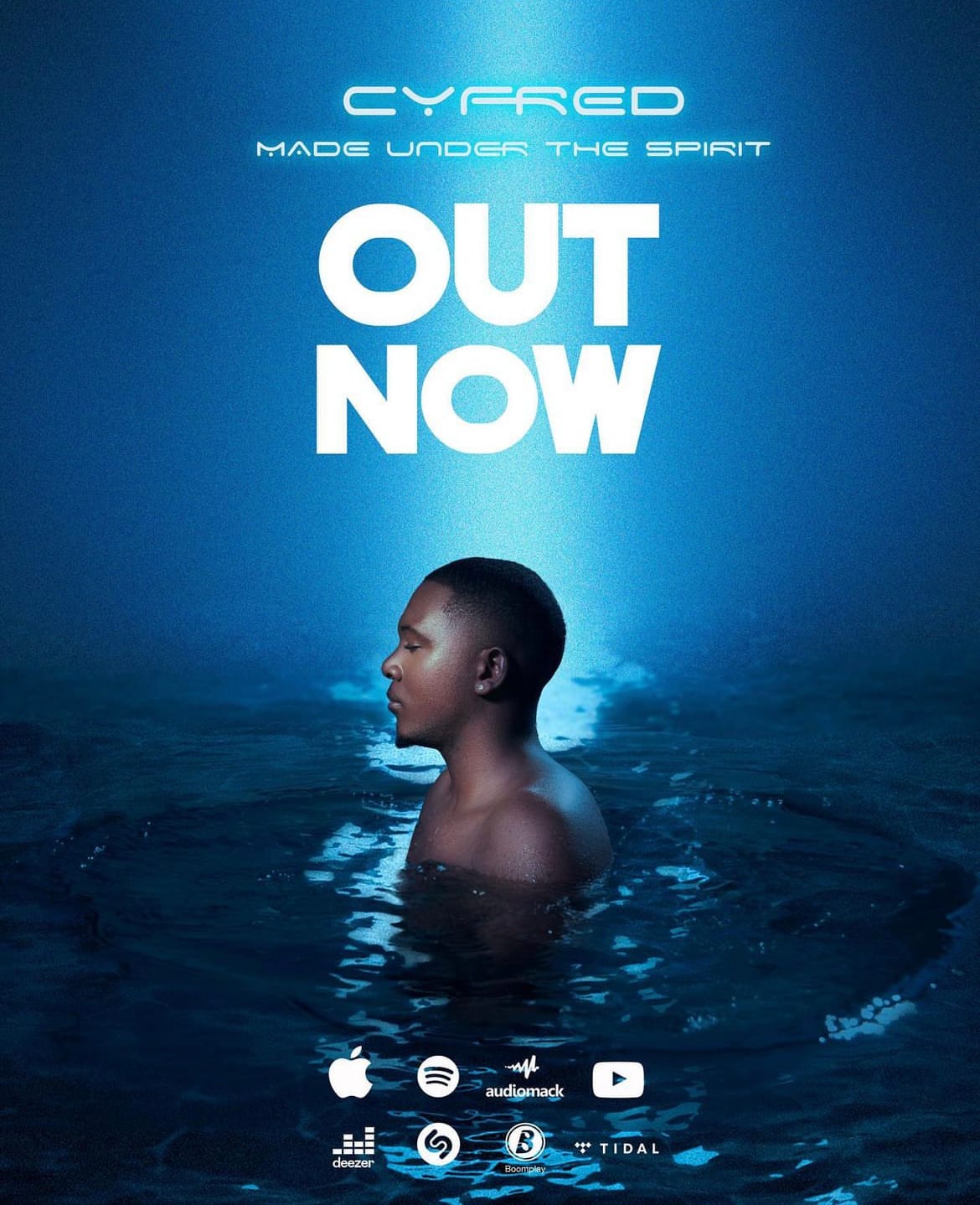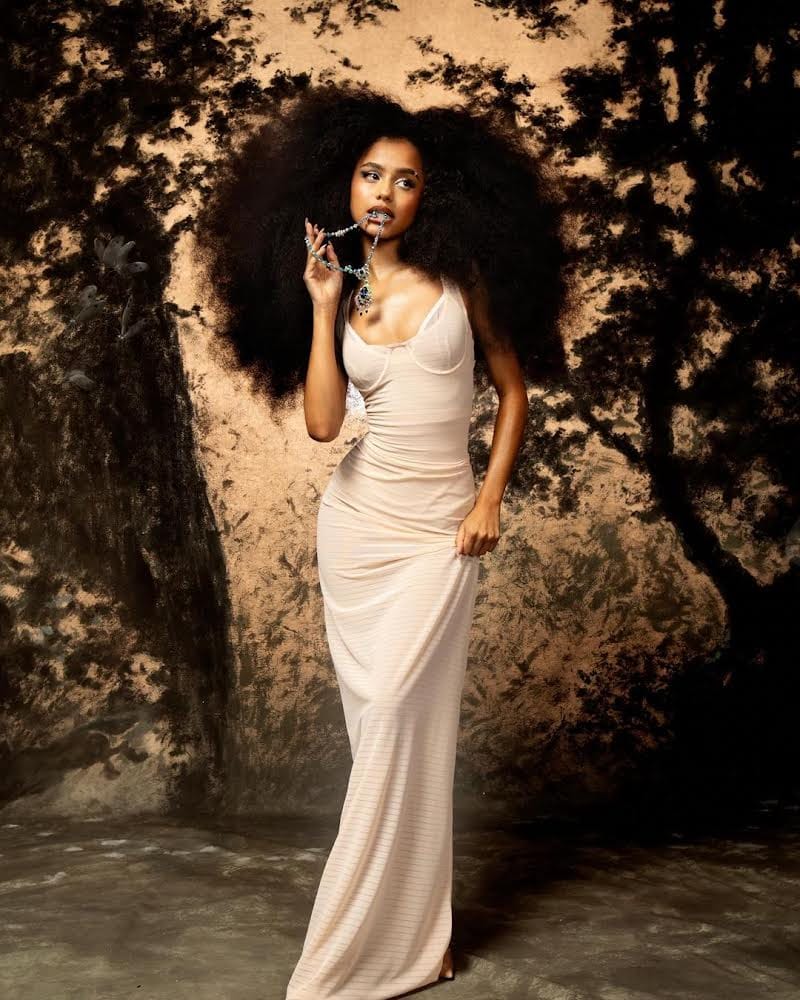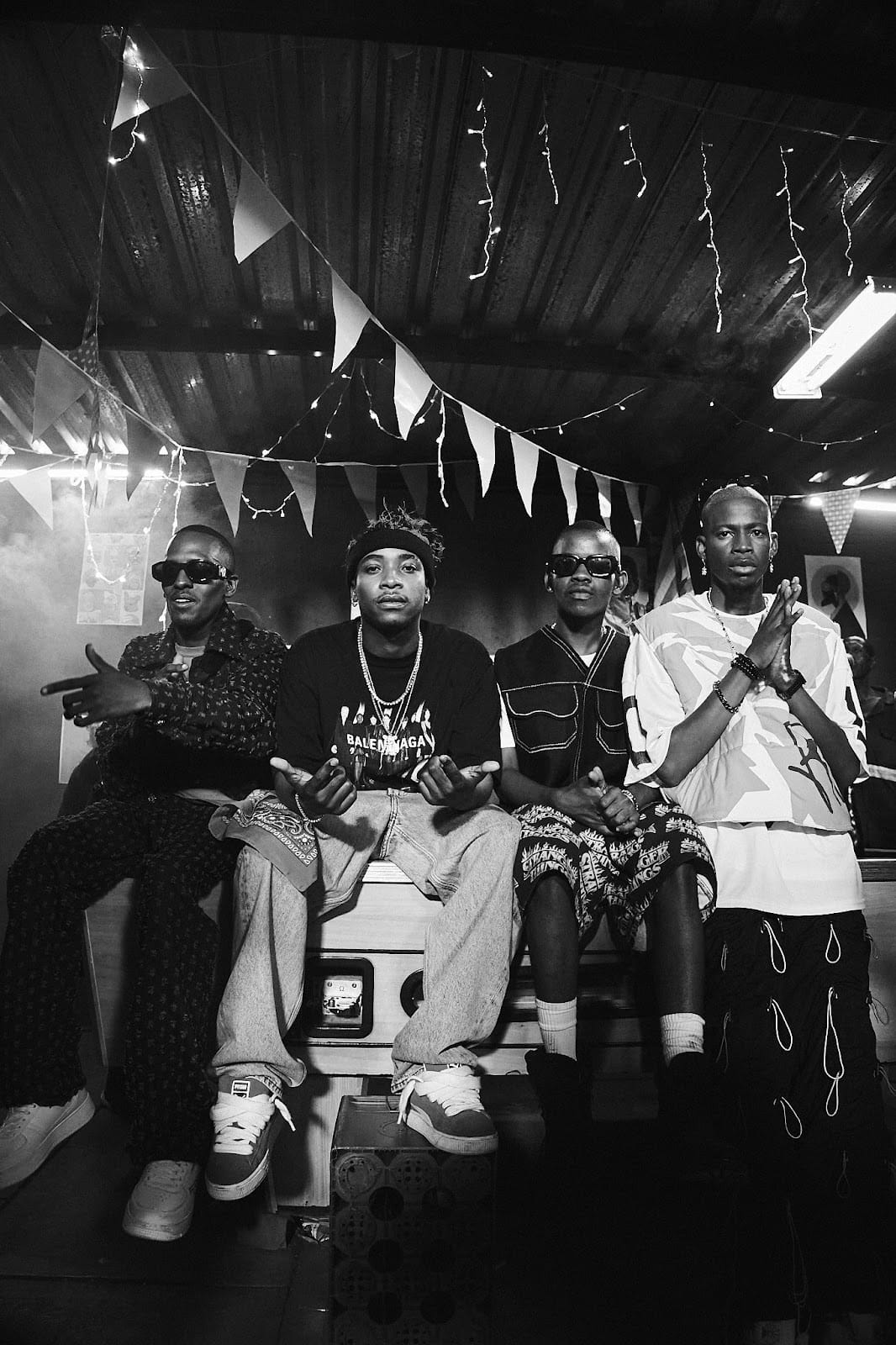Cyfred is a South African Amapiano artist from Polokwane. He spent most of his life in a suburb called Ivy Park and moved to Gauteng in 2019 for school. Because he had more time on his hands, he decided to pursue a music career. He made an impression on listeners with his breakthrough song, “Snake Park.” He captured South Africans’ hearts with his infectious lyrics and up-tempo sound. His recent release, Made Under The Spirit, is a beautiful project that combines compelling and catchy beats with soulful and heartfelt melodies. Cyfred collaborated with artists like Musa Keys, Nkosazana Daughter, Kelvin Momo, Sino Msolo, Babalwa M and more to deliver a captivating musical experience for listeners.
He speaks about his musical journey and what drives him to deliver vibrant musical experiences for his listeners continuously.
What drew you to music?
I’ve always been a music lover. I grew up being a dancer, and for you to dance, you need to love and understand music; the rhythm and everything that comes with music. So, I used to dance. I used to dance for church and at school. I used to dance hip-hop, I used to breakdance, I used to krump dance, I used to dance isbujwa and pantsula, I used to tap-dance. I used to do a lot of dancing, except for ballet, because I wasn’t that flexible. That’s where my love for music started.
My bigger brother also loved music; when he dropped us off at school sometimes, he played a lot of music. My transport driver also used to play a lot of music, so I’d prefer sitting at the back to hear the music properly. And as I grew, I was introduced to Amapiano in 2015, and I loved the sound. It was different from everything I’ve heard throughout my life. I decided to visit Alexandra to get more information and songs because, at the time, Amapiano was not really a thing, so getting songs and access to the genre was not as easy as today. I was visiting my cousins in Alex. Still, I took the initiative to take a USB and collect whatever I needed. I did that, and then, in 2019, I decided to make my first song. It was quite a huge song at that time. Then, a year later, I released another instrumental song that did well. I think later that year, I released “Snake Park,” and I feel like that’s when the industry started knowing more about me, and doors opened for me. I believe luck gets you there, but hard work keeps you there. So Snake Park is that lucky song that got me there, and my hard work is keeping me there.
What inspires you to make music?
Usually, I make music based on the feeling that I am feeling or the space I am in in my life. For me, making music is like a diary, but I am sharing this diary with people in the form of music, and they understand where I am. With my previous projects, it was more of me experimenting and trying to find my sound. It’s only now that I feel more comfortable with the sound I am creating, and I need to stick with it and go harder with it.
What’s your creative process?
I usually stay away from my phone, try to get in touch with my creative side, and get to business. I usually work with a producer named Sayfar. He is a very hands-on guy. So we come up with the concept of the song, or sometimes we already know what type of song we want. So, we already know we need to do something very spiritual or musical. We need beautiful melodies, a smooth log drum, and a good vocalist. Another thing is that many musicians work at night, but I work during the day. I prefer working during the day, making the music during the day and then playing it at night. I also work with a guitarist called Teddy, so after we do the percussion, he comes in with the guitar, lays off the songs, gives us the vibes, and we take it from there.




Which artist would you most like to collaborate with?
I would love a Rema feature. But I would mostly like an Asake feature because Asake is more into Amapiano. Even though his sound is different, he is one of the most prominent Nigerian artists focused on Amapiano. I love that he is invested, he’s not doing it just because it’s trending but he’s always invested in the genre. In South Africa, I’ve worked with almost everyone I’d like to work with. Still, I am always open to working with more prominent names than me, like Madumane, DJ Maphorisa, or Russell Zuma. I’d also love to work with Amanda Black. I’ve never heard her on an Amapiano song, so I’ve been trying to get a hold of her, but no luck yet. But it’s okay, I believe that with music, everything happens in time. So, there’d be a perfect time and space, and I believe that if I ever get to sit down and work with her, we’d make something magical.
How do you handle criticism?
Depending on who it is coming from and how it is being delivered, I’ve been criticised by people that I look up to, but it was more like they were building my character, so it was more of constructive criticism because they wanted me to do better and they knew that I could do better. Sometimes, people accept criticism as hate, but sometimes, it’s just the truth. Someone can tell me that this song is bad because of this and that, but if I take it as though this person hates me or hates what I am doing, I will miss the point of what they were trying to tell me. Only to find that they are telling me that this song is not mixed and mastered so I need to work on a few things. So, I don’t really let criticism affect me negatively. It’s more like how to better myself and be better with the next song. But I’ve never gotten bad criticism regarding the music I’ve released. I believe I have my own people who love my music style and an audience that just loves me.
What is the most challenging aspect of being a musician?
Number one, I’d say, is having the capital to do a lot for yourself money-wise. So finance is the biggest fighter because you can’t put any product out there if you don’t have finance. Another thing is that you can’t put quality out there. But, if you have the proper finances, your pictures will be good, and your sound will be good because you are using the right studio equipment. You know that you have a marketing team to put your song out there — that’s an expense and needs finances. Another thing is finding yourself in a room full of different people, and you want to be unique. And another challenge is just being confident. More than anything, if you are a confident artist, you will do anything you want to do because you trust yourself. And finding an identity is another factor I struggled with, but I was able to surpass that.
How do you balance your personal life and career?
I think I’ve been able to find the balance between the two. I take a lot of gigs in Polokwane, so every time I have a gig there, I make sure that I go home. This year, I’ve been to Polokwane about 6 or 7 times. I make sure that I make time for my family, answer their calls, and always try to reply to any missed calls or texts as soon as possible. It’s easy because they also understand how busy I am. They usually try to contact me during the day because I am not reachable at night since I have to be prepared for a gig. But I don’t have a large family, I just have three siblings and my parents.


How do you stay motivated and inspired to create new music?
Music is my diary, and I am constantly getting new life experiences. What keeps me motivated is knowing where this music thing will take me, and I always believed in it. In 2019, I used to sell t-shirts with “Amapiano is the future” on them. I still know that Amapiano is the future, and I still want amapiano to be bigger than what it is now. And I just want to make sure that my family is fine. Whoever I get married to must have a good life. More than anything, I want iPiano to touch people differently, the way it touches me. And musically, I’m still writing my diary, and I’m still expressing myself through music.
What is your favourite part about being a musician?
Travelling the world. Meeting people in different countries that know you and celebrate you. Kenya has been my favourite country to travel to. I feel like people in Kenya are happy and jolly, outgoing and celebrate life more than anything. I resonate with them as a Pedi man because we really cherish life. Not to say that other tribes don’t cherish life. I’m just speaking from the experience of a Pedi person. But my favourite part is that I get to see people happy. I get messages from people saying that the music is like therapy to them. For instance, after I released Made Under the Spirit, people were messaging me and telling me about depression and how this project makes them feel calm and better and touches their spiritual side and all those things. And for me, it’s like I’m a doctor in a way.
What is your favourite song to perform and why?
Umsebenzi. Because it’s kind of like a victory song. It goes something like “bona bayeke, bayeke bazame” and reminds me that people will try you in life. People will try and destroy you, but they’ll never succeed. From my experiences this year, people have tried to do negative things to me but didn’t succeed. Because I’m still here, I’m still going harder. For instance, we got half a million streams in just two weeks. So that song reminds me of how what’s meant for you will always find you, no matter what.
What would you say to someone who wants to follow in your footsteps?
Number one, believe in yourself. Believe in God. God works in so many different ways. And just be in your own lane at your own pace. It would be best if you were your own competition. Don’t compare yourself to another person because you don’t know what formula that person uses. Believe in yourself, believe in God, stay in your lane, and have your own identity. Don’t let people’s words affect you because that won’t put bread on the table; just go for it.
Immerse yourself in a vivid and high-spirited musical journey by streaming Cyfred’s latest release Made Under The Spirit.






No Comments